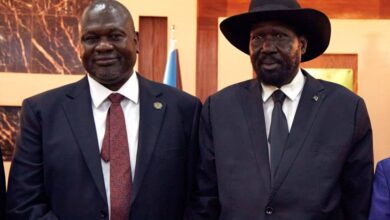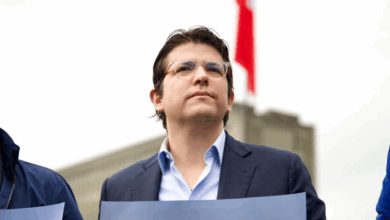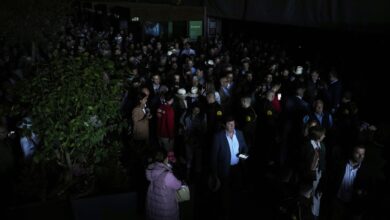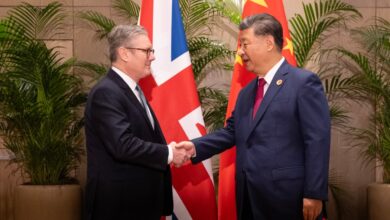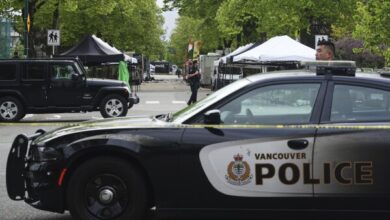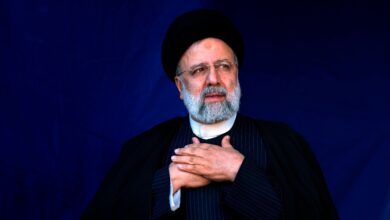Explosions Rock Southwest Colombia, Killing at Least Seven in Police-Targeted Attacks
Explosions in southwest Colombia killed at least seven and injured 28 Tuesday in attacks targeting police, officials said.
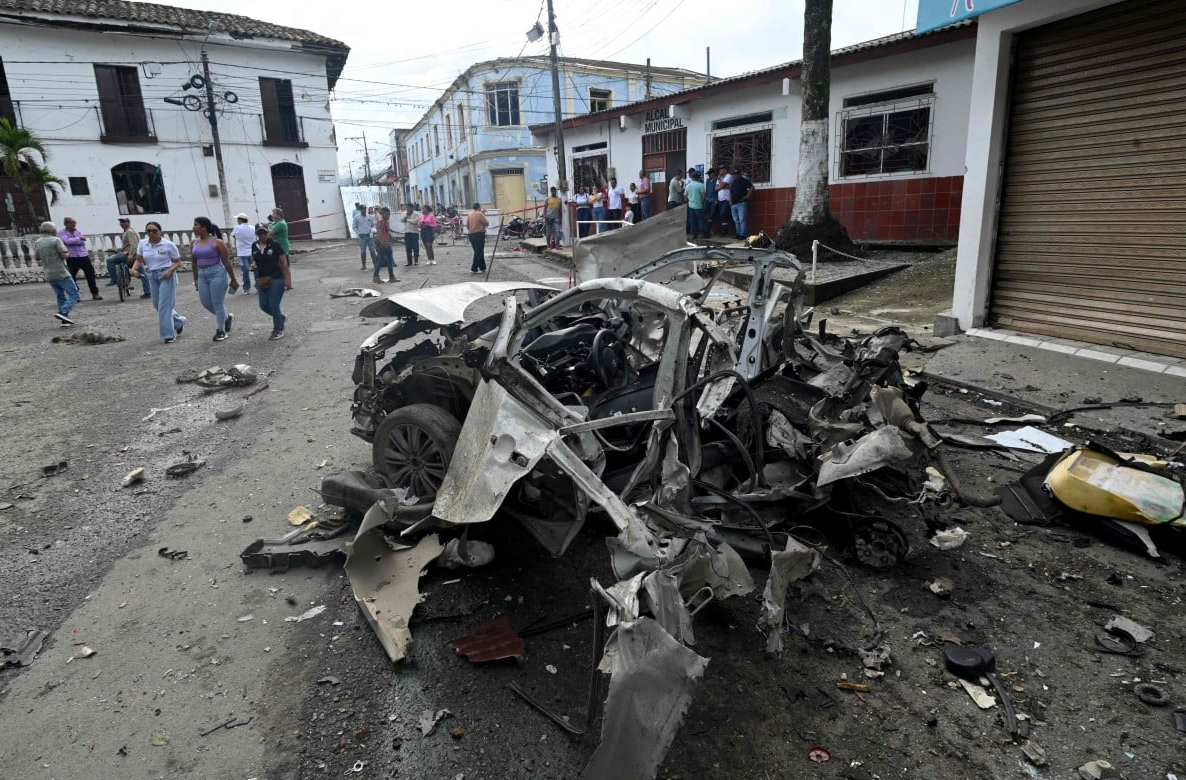
COLOMBIA (WE) — A coordinated wave of explosions struck southwest Colombia early Tuesday, killing at least seven people and injuring 28 others, according to officials. The government believes the attacks specifically targeted law enforcement, raising new concerns about a deteriorating security situation.
The blasts rocked Cali, as well as several towns in Cauca and Valle del Cauca. The Colombian National Army confirmed on X that the police were the “direct target” of these assaults. Importantly, this marked one of the largest single-day attacks in the region since the 2016 peace accord.
Furthermore, the National Police of Colombia reported more than 20 “terrorist attacks” throughout the day. These included vehicle-borne explosives, direct gunfire, and projectile-launched explosives. Tragically, at least two police officers were among the dead. The injured included both civilians and members of the armed forces.
Meanwhile, intelligence gathered by the military has linked the attacks to the dissident guerrilla group Estado Mayor Central, a faction of the defunct FARC. Although no formal claim of responsibility has been made, the group issued a statement accusing the government of betraying the peace process. It also advised civilians to avoid combat zones, suggesting possible premeditation.
In Cali, the country’s third-largest city, Mayor Alejandro Eder confirmed that three separate explosions occurred Tuesday. One struck near the Meléndez police station, another near the Manuela Beltrán Immediate Attention Center (CAI), and a third in the Los Mangos neighborhood.
As a result, authorities quickly deployed reinforcements across the city. “They want us to go back to 1989. We won’t allow it!” Eder declared, referencing the era when drug cartels brought chaos to Colombian cities and assassinated presidential candidate Luis Carlos Galán.
Videos circulating on social media—verified by CNN—showed vehicles engulfed in flames and debris scattered across major roads. Pedestrians, visibly shaken, gathered near police cordons as sirens blared in the background. These images have further amplified the public’s fear of renewed urban violence.
In a statement later that evening, the Ministry of Defense revealed that security forces had thwarted six additional attacks. Moreover, they arrested two individuals found assembling explosives. Although the ministry did not identify the suspects, officials emphasized that these arrests form part of a broader investigation.
According to Sergio Guzmán, director of Colombia Risk Analysis, the attacks are a clear tactic. “These groups are trying to pressure the government,” he explained. “They want concessions in exchange for halting violence.” Guzmán also noted that attacks on police are calculated efforts to provoke a military response and derail peace negotiations.
In response, Dilian Francisca Toro, the governor of Valle del Cauca, urged President Gustavo Petro to convene the National Security Council. She called the violence an act of terrorism and demanded immediate action to stabilize the region.
Additionally, Elizabeth Dickinson from the International Crisis Group said the attacks indicate a shift in strategy. “This is not just rural insurgency anymore,” she warned. “These groups are now trying to destabilize urban centers and undermine the government’s control.”
Notably, Cali had recently hosted a UN-sponsored biodiversity summit, where the Petro administration showcased the city as a symbol of progress and environmental leadership. Tuesday’s attacks starkly contradicted that narrative.
Francia Márquez Mina, Colombia’s vice president and a native of Cauca, strongly condemned the violence. “I categorically reject the wave of violence in Cali and northern Cauca,” she said on X. “We cannot build peace by instilling fear.” She emphasized the need to restore order while respecting civil rights.
Meanwhile, the political climate is growing more volatile. Just days ago, gunmen opened fire at a campaign event for Miguel Uribe Turbay, a senator and leading presidential candidate for 2026. Uribe remains in critical condition. Though officials have not linked the incidents, both attacks suggest armed factions may be seeking to influence Colombia’s electoral process.
Read More:
- Greta Thunberg Deported from Israel After Attempting to Break Gaza Blockade, Condemns ‘War Crimes’
- Israeli Fire Kills Civilians Near Aid Distribution Sites in Gaza as Humanitarian Crisis Deepens
- UK to Review China’s Embassy Plan After Trump Warning and Espionage Fears
The Attorney General’s Office has launched parallel investigations into both attacks. Additionally, the Colombian Air Force dispatched surveillance aircraft to monitor key areas in Cauca and Valle del Cauca.
Throughout the night, alerts warned residents to remain indoors. Hospitals operated under emergency conditions, while soldiers patrolled highways and guarded infrastructure. The National Disaster Risk Management Unit also activated its regional teams.
President Petro, who has championed a “Total Peace” initiative since taking office, has not yet spoken publicly. His plan aims to negotiate ceasefires with all armed groups—whether political or criminal. However, critics argue this approach has emboldened insurgents. In particular, they point to Tuesday’s attacks as evidence that the ceasefire gives groups time to regroup.
“They’re not interested in peace,” Guzmán said. “They’re using the negotiations as cover to strengthen their networks and challenge the state.”
Semana reported that Petro held an emergency meeting Tuesday night with high-ranking military and police officials. As of Wednesday morning, the Presidency of Colombia has not announced a national address.
International reactions were swift. Luis Almagro, Secretary-General of the Organization of American States, denounced the bombings and called for accountability. Carlos Ruiz Massieu, the UN special envoy to Colombia, urged all parties to avoid escalating conflict.
Despite these appeals, many Colombians feel the country is at a crossroads. As Dickinson noted, “These attacks are not isolated incidents. They reflect a broader effort to sabotage Colombia’s post-conflict transition.”
In the coming days, public attention will likely turn to how the Petro administration responds—both in terms of law enforcement and political messaging. Local leaders, particularly in southwest Colombia, are demanding a more forceful stance.
In conclusion, while peace remains the government’s central promise, Tuesday’s violence underscores just how fragile that promise remains. For the families of those killed, and the millions living in fear, the road to real peace now appears more uncertain than ever.
